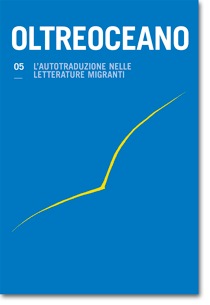Confessioni di un italiano. Alcune osservazioni sull’autotraduzione
Keywords:
lingua in divenire, autotraduzione, poeta, globalizzazioneAbstract
Come ogni altra tipologia di traduzione, anche l’autotraduzione si consolida in una lingua in divenire, che si fonda su un modello ibrido di mondi paralleli, fittizi, perché ibride sono anche le esperienze che da questi mondi poetici e geograficamente localizzabili provengono. L’autotraduzione, rappresentano, dunque, delle strategie che il poeta mette in azione per superare, non solo la lingua codificata, originale, la lingua nella quale è nato, ma anche la possibilità di ricreare un linguaggio che possa accogliere il mondo multiplo del poeta contemporaneo, sempre meno nazionalmente radicato e sempre più incluso in un processo di mondializzazione della cultura.
An Italian’s Confession
Like all other typologies of translation, self-translation as well is to be seen as a language in progress, based on a hybrid model of parallel fictitious worlds. Fictitious because hybrid are also the experiences that stem from these poetical worlds geographically located. Self-translation therefore represents strategies which the poet employs to move beyond not only the codified language, the original one of his birth, but also the possibility to recreate a language capable of accepting the multiple world of the poet, less and less nationally rooted and more and more included in a process of cultural globalization.
Downloads
References
Blanchot, M. (1994): L’Espace littéraire. Paris: Gallimard.
Buffoni, F. (2010): Iosif Brodsky. Recuperato da http://ww.nazioneindiana.com/2010/08/19/iosif-brodsky/
Campos, H. de. (1977): A arte no horizonte do provável. São Paulo: Perspectiva.
Canfield, M. (2004): Poesia per sognare e meditare. In B. D’Angelo, Milongas y otros ritmos (pp. I-VI). Lima: PUCP.
Cocco, S. (2009): Lost in (Self-)Translation? Riflessioni sull’autotraduzione. Annali dell’Università degli Studi di Sassari. Lost in Translation. Testi e culture allo specchio, 6, pp. 103-118.
D’Angelo, B. (2004): Milongas y otros ritmos. Lima: PUCP.
D’Angelo, B. (2006): Humboldt. Lima: Estruendomudo.
Gombrowicz, W. (1938): Ferdydurke. Warsaw: Rój.
Meschonnic, H. (1995): Preposizioni per una poetica della traduzione. In S. Neergard (Ed.), Teorie contemporanee della traduzione (pp. 265-281). Milano: Bompiani.
Neergard, S. (1995): Teorie contemporanee della traduzione. Milano: Bompiani.
Oustinoff, M. (2001): Bilinguisme d’écriture et auto-traduction. Julien Green, Samuel Beckett, Vladimir Nabokov. Paris: L’Harmattan.
Downloads
Published
How to Cite
Issue
Section
License

This work is licensed under a Creative Commons Attribution-NonCommercial-ShareAlike 4.0 International License.
The authors undertake to comply with the following conditions, which are considered accepted at the time of submission of their contributions.
The sending of a text implies that it is unpublished and not submitted to be published elsewhere.
1. If accepted, the author shall confer on the publisher the right to publish and distribute it both in paper form and in the online electronic edition. The published articles will be downloadable and made available in open access.
2. Provided that it correctly indicates that the first publication took place in the journal Oltreoceano. Rivista sulle migrazioni the author has the right to: a) reproduce the article in separate extracts or collected in a volume; b) publish the article on their personal website or teaching site provided that these sites are of a non-commercial nature; c) deposit the article in online archives of a non-commercial nature, linked to the institution they belong to or as part of projects for the non-commercial dissemination and open access of scientific works.
The use of contributions by third parties, for commercial or otherwise unauthorized purposes, is not allowed. The publisher declines all responsibility for the unauthorized use of the material published in the journal.












